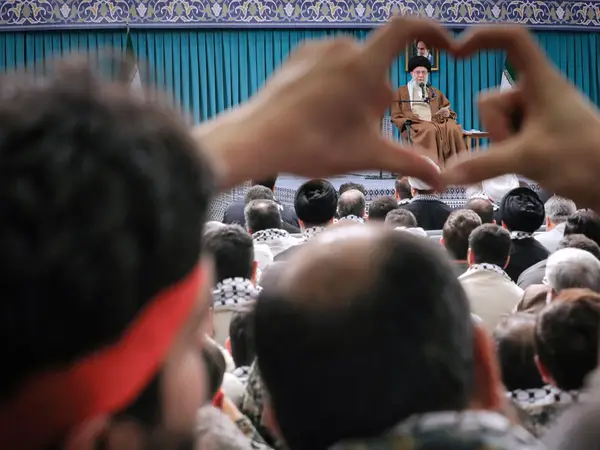Iran's Assembly of Experts, tasked with selecting a successor for the 84-year-old Supreme Leader Ali Khamenei, is reportedly in the process of determining a deputy for him.
The post, initially created following the Islamic Republic's inception, was abolished in 1989 after the fallout between the first leader, Ayatollah Ruhollah Khomeini, and the country's inaugural deputy supreme leader, Ayatollah Hossein Ali Montazeri, who remained under house arrest until his death in 2009.
The absence of a designated successor since 1989 poses a potential threat to Iran's stability, both before and after Khamenei's eventual passing.
Ayatollah Rahim Tavakol, a member of the Assembly of Experts, disclosed on November 28 that a committee within the Assembly has been assigned the task of appointing a deputy supreme leader. While the matter was not discussed in the recent Assembly meeting, Tavakol emphasized the confidentiality of the committee's work, stating that only its members, including himself and the Assembly chairman, have knowledge of the selected candidates.
He said, "no one other than the committee members including myself and the chairman of the Assembly know the names of those who have been selected as possible deputy supreme leader. So, there was no discussion about this at the Assembly meeting."
Tavakol made it clear that "what the committee does and whom it choses is a secret." Although he tried his best to be secretive about the matter, when reformist Jamaran News website speculated that President Ebrahim Raisi and Tehran Friday Prayers Leader Ahmad Khatami are the other members of the committee, Tavakol said: "Yes. And I am on the committee too."
He clarified that Khamenei is the sole individual privy to the names of the potential nominees for the deputy supreme leader role. The committee, known as "The Committee to Determine the Next Leader," consists of only three members, raising questions about the roles of the remaining 88 members of the Assembly of Experts.
Meanwhile, responding to criticisms about the Assembly of experts presenting reports of its activities to Khamenei rather than keeping checks and balances on the leader's performance as stipulated by Iran's Constitution, he said the Assembly does not interfere with the leader and the institutions that operate under his aegis, nonetheless, there is a two-way relationship between the leader and the Assembly of Experts.
Last week, former President Hassan Rouhani openly spoke about the possibility of Khamenei's death and the importance of the issue of succession. He said, "every day brings us closer to the day of his death although we wish him a long life."
Despite frequent expressions of support by Khamenei and his loyalists for Hamas since the start of the Gaza war, the Iranian government has decided not to get directly involved and assist its proxy militarily. Khamenei has even softened his position somewhat regarding Israel, showing his overall weak position. There have also been concerns about his health after his meeting with athletes last week, during which he looked and sounded frail.
The interview by Tavakol, could be an attempt to prepare the mood for an announcement about the next leader.
One possible solution is to designate a collective body. However, since 1988, Assembly of Experts has opposed a collective leadership by a group of clerics, as conflict of interests could drag the country into chaos. Consequently, individual leadership by figures like Khamenei's son Mojtaba, President Ebrahim Raisi, and former President Hassan Rouhani are more likely choices, despite their diminished popularity. The ultimate decision, however, remains uncertain, as the people's desires, if considered, present an entirely different narrative.
There have been numerous calls by former regime supporters in recent years to drastically alter the constitution and either eliminate the position of the Supreme Leader or reduce its power. Popular protests since 2017 have also shown a growing public rejection of Khamenei’s rule and clerical domination.
